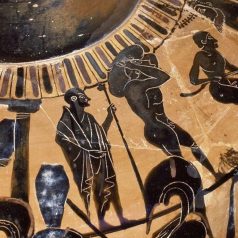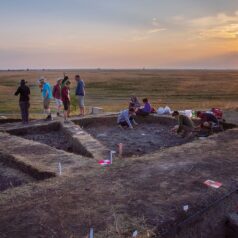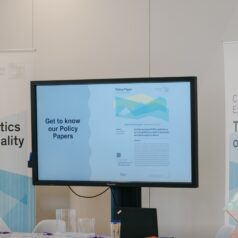Filter by


Clusters of Excellence
The search provides information on the Clusters of Excellence. By clicking on "Select filters" you can search for specific federal states, research areas and funding lines.
10 Results
Africa Multiple
Africa Multiple: Reconfiguring African Studies
The cluster is conceived as a transformative space within which to systematically advance the study of Africa and its diasporas via the pursuit of transdisciplinary research, with a strong emphasis on critical area studies, in addition to the disciplines involved. Building on decades of internationally outstanding research in African studies at University of Bayreuth, the cluster develops new approaches to the analysis of African and African diasporic lifeworlds through the lens of multiplicity.
BCDSS
Bonn Center for Dependency and Slavery Studies
The BCDSS at the University of Bonn aims to overcome the binary opposition of "slavery versus freedom". It is a research cluster within the framework of the Excellence Strategy of the federal and state governments.
ECONtribute
Markets & Public Policy
ECONtribute: Markets & Public Policy, a joint initiative of the Universities of and aims to advance the analysis of markets & public policy in light of fundamental societal and technological challenges, such as digitalization, global financial crises, rising inequality and political polarization. Since 2019, ECONtribute: Markets & Public Policy is funded as a Cluster of Excellence under the German Excellence Strategy. ECONtribute is the only Cluster of Excellence in Economics and neighbouring disciplines.
Matters of Activity
Image Space Material
The Cluster »Matters of Activity. Image Space Material« aims to create a basis for a new culture of materials. The central vision of the Cluster is to rediscover the analog in the activity of images, spaces and materials in the age of the digital.
Religion and Politics
Dynamics of Tradition and Innovation
The Cluster of Excellence “Religion and Politics. Dynamics of Tradition and Innovation” at the University of Münster has been investigating the complex relationship between religion and politics across epochs and cultures since 2007. The 140 researchers from 10 countries and more than 20 disciplines in the humanities and social sciences are particularly concerned in the funding phase from 2019 to 2025 with the “dynamics of tradition and innovation”.
ROOTS
Social, Environmental, and Cultural Connectivity in Past Societies
The Cluster of Excellence ROOTS explores the roots of social, environmental, and cultural phenomena and processes that substantially marked past human development.
SCRIPTS
Contestations of the Liberal Script
The Cluster of Excellence SCRIPTS analyzes contemporary controversies about the liberal order from a historical, global and comparative perspective. What are the causes of the current contestations? How do they differ from earlier crises? What are the consequences for democracy and the global challenges of the 21st century? In operation since 2019, SCRIPTS is hosted by the Freie Universität Berlin and unites eight major Berlin-based research institutes.
Temporal Communities
Doing Literature in a Global Perspective
The Cluster of Excellence 2020 "Temporal Communities: Doing Literature in a Global Perspective" aims to create a new theoretical and methodological take on literature in a global perspective that moves beyond the categories of nation and period and conceives of literature instead as a transcultural and transtemporal phenomenon in deep time.
The Politics of Inequality
Perceptions, Participation and Policies
"The Politics of Inequality: Perceptions, Participation and Policies" - that is what we call our Cluster of Excellence within the framework of the Excellence Strategy of the federal and state governments. This cluster of excellence is a joint project of researchers from political science, sociology, economy, linguistics, psychology and education studies.
Understanding Written Artefacts
Writing is one of the most important cultural techniques to have shaped the world’s societies. For most of human history, writing has been handwriting and has been part of diverse and complex manuscript cultures. Written artefacts have been continuously produced up to our own day, though the invention of printing with moveable types marginalised some while at the same time prompted new ones, not least digital media.Over the past three decades, scholarly interest in written artefacts has increased significantly.








